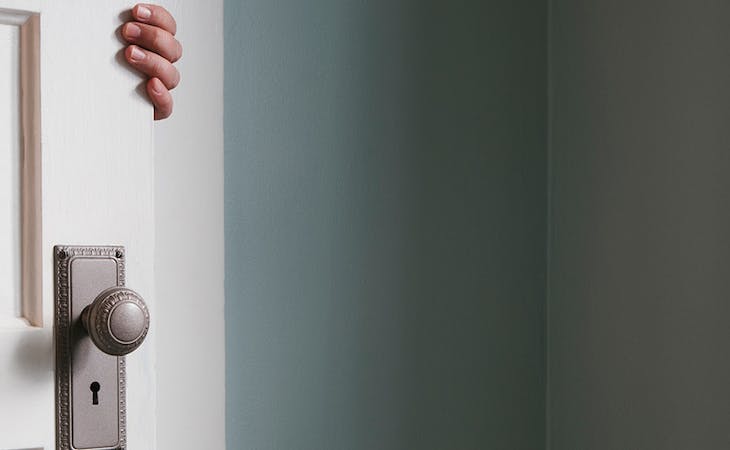For some reason, humans really like to scare themselves silly. Case in point: horror movies. In 2017 alone, scary movies brought in $733 million at the box office. The trouble is, that white-knuckle thrill can seriously mess with your sleep patterns. In advance of this upcoming Friday the 13th, we wanted to delve deeper into how and why scary movies interfere with sleep—and what we can do to fight the fright at bedtime.
How scary movies work
Despite their obvious tropes—don’t go into the basement!—scary movies can be pretty sophisticated. By creating a compelling enough fictional scenario, filmmakers tap into primal human responses, developed over tens of thousands of years. As a result, when faced with a jump scare, our bodies react—albeit for the briefest of moments—as if the threat were real: we jump, we flinch, and we get ready to fight or flee. Even our involuntary screams are designed to alert our “tribe” about incoming threats, Michael Grabowski, an expert on the neuroscience of film, told Business Insider.
Some people crave a good scare because the experience brings with it several surprising benefits. After the initial flood of anxiety and stress, once we know we’re safe, our bodies release endorphins and neurotransmitters such as dopamine and serotonin. These feel-good chemicals induce a sense of calm and promote social bonding. However, as Margee Kerr—an expert on fear—notes, some of us are more sensitive to the effects of stress than others and don’t experience that same post-terror euphoria after they watch a scary movie.
The relationship between horror films, stress, and sleep
Since horror movies create genuine feelings of stress, it’s important to understand how our bodies react in these situations, and the consequences for sleep. Our autonomic nervous system, which controls involuntary behavior, is composed of both the sympathetic nervous system (“fight or flight”), and the parasympathetic nervous system (sometimes called “rest and digest”). As soon as we detect a possible threat, our sympathetic nervous system takes over, triggering a complex chain of events, including the release of stimulating hormones such as norepinephrine, cortisol, and adrenaline. Our pupils dilate, our heart rate increases, and our muscles tense in preparation for action.
As you can imagine, all this stress is hardly conducive to restful, restorative sleep. Although with time and practice, we can learn to distinguish between genuine and fictional threats and recover from shock, we can’t always control the body’s initial response to stimuli. During periods of stress, the brain inhibits our parasympathetic nervous system—and along with it our ability to relax and even digest our popcorn. Studies in mice have shown that stress decreases both deep sleep and REM sleep, and increases the likelihood of periodic arousals.
Although the relationship is not fully understood, there is some evidence to suggest that stress can not only impair sleep but also worsen in response to sleep deprivation, constituting a classic vicious cycle. One sleepless night because of a horror flick can have serious repercussions down the road, so don’t take your viewing choices lightly!
Reasons to skip horror films on fright night
Any one individual’s reaction to scary movies depends on a wide range of factors, including personal experience and psychological predisposition. So this Friday the 13th, trust your own instincts above all else: Be mindful of your body’s responses in the moment, and don’t feel pressured to take part in an experience you won’t enjoy. And if you do love horror flicks, make sure you give yourself enough time to wind down afterward. If stress, in general, affects your sleep, try some relaxation techniques or evening yoga to keep the demons at bay. After all, there’s nothing scarier than a bad night’s sleep.




